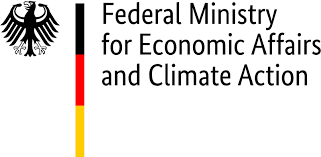Call for ideas archive 2023
The Lab selected six innovative climate finance ideas to develop in 2023.
Meet the Lab class of 2023
View all ideasWhat the Lab is looking for?
Lab Guidelines for ApplicantsIn 2023, the Lab will develop six climate finance ideas from two thematic streams and three regional programs, plus one open idea.
Webinars

The Global Innovation Lab for Climate Finance is accepting proposals for innovative climate finance ...
Watch
O Global Innovation Lab for Climate Finance está com inscrições abertas para soluções inovadoras em ...
WatchWhat happens if your idea is selected
If your idea is selected by Lab Members, you will work with a team of analysts, key stakeholders, and experts to:
1.
Develop or refine the mechanics of your idea.
2.
Survey the market landscape of comparable solutions and assess the idea's viability and impact potential.
3.
Develop robust financial modeling.
4.
Assess and document potential social and environmental impacts.
5.
Map risks and risk mitigation strategies.
6.
Develop a detailed implementation plan.
7.
Create promotional content and pitch your ideas to donors and investors.
8.
Potentially receive endorsement from the Lab.
9.
Get implementation support to execute go to market strategy.
How ideas are selected
FAQApplicants must complete an online form (see PDF version for reference). A set of key criteria guides how submitted ideas are assessed and ranked.
Why submit an idea?
Selected ideas receive guidance from high-level leaders from the public and private sectors, who contribute expertise, political support, and financial capital.
See all Lab membersSelected ideas also benefit from robust analysis, stress-testing, and development by Climate Policy Initiative’s team of experts.
Meet the Lab experts$
250
k
value of in-kind analytical and communications support received by selected Lab ideas
$
1.1
bn
invested by Lab members and observers
$
3.5
bn
mobilized by endorsed Lab instruments
Who is involved?
Lab membersThe Lab comprises over 70 expert institutions in government, development finance, philanthropy, and the private sector. The funders for the Lab’s 2023 cycle are included below. CPI serves as the Lab Secretariat.











